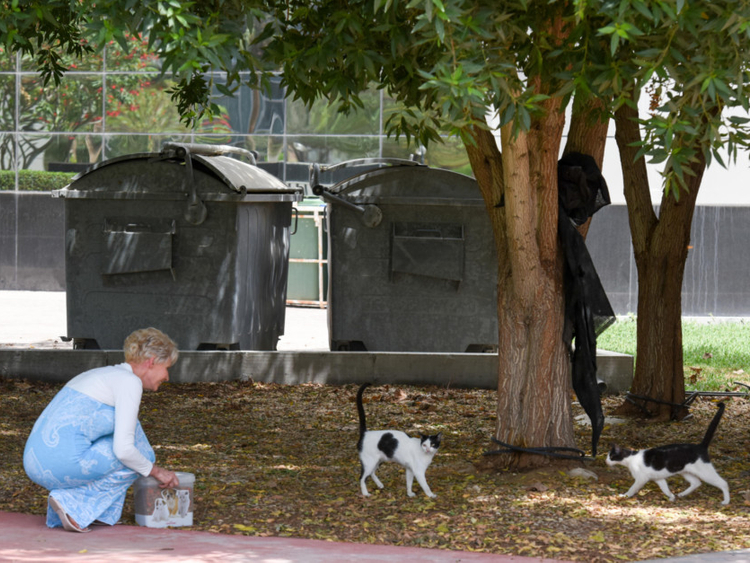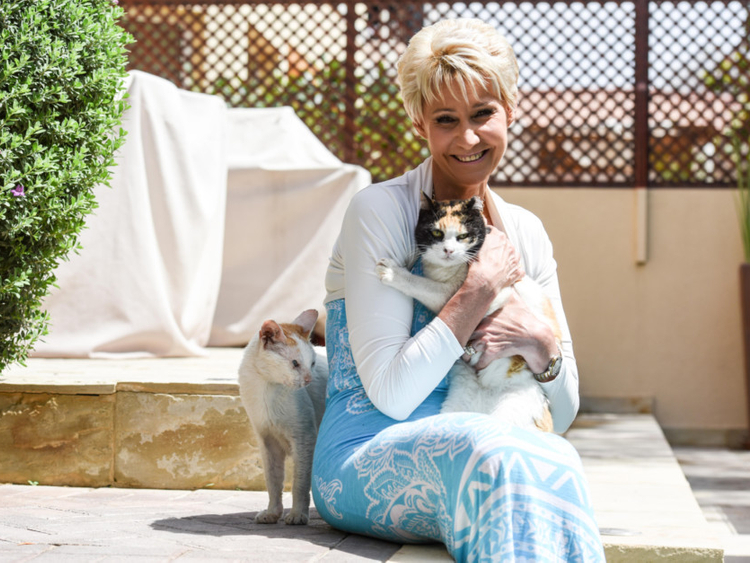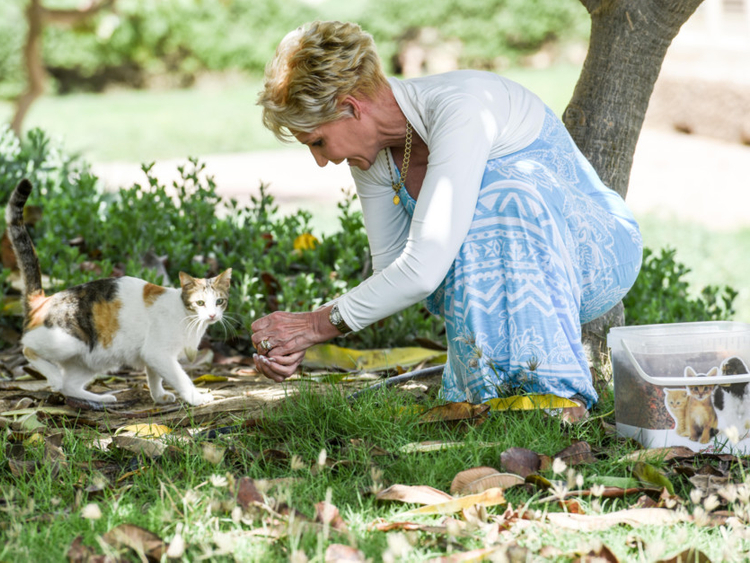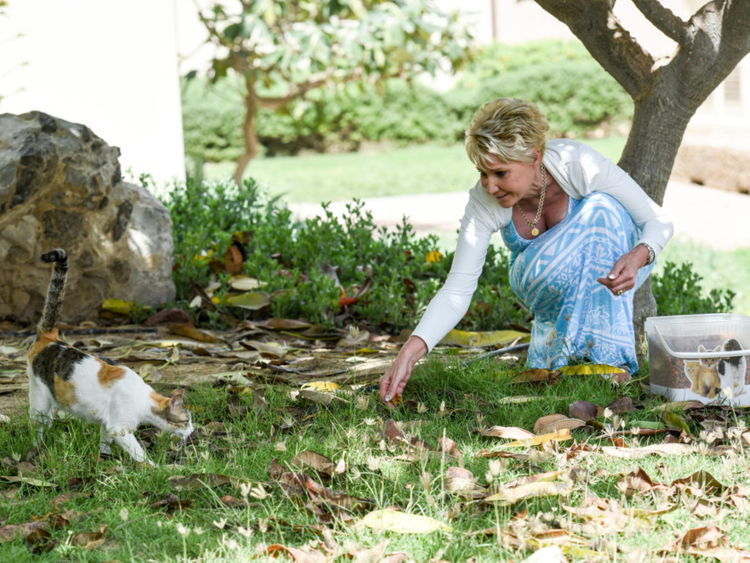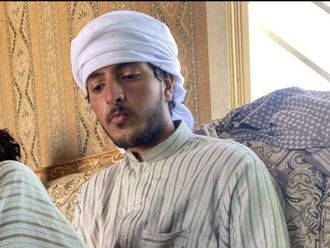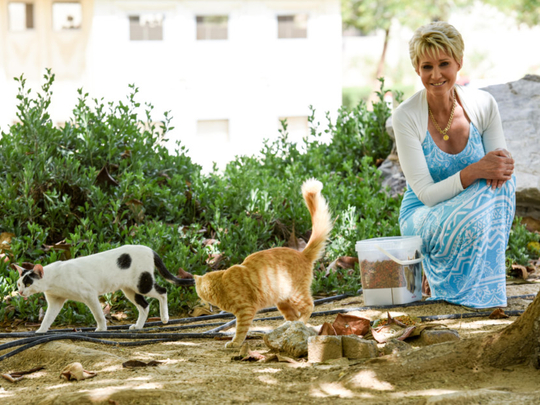
Dubai: They say diamonds are a girl’s best friend. But not for Carol Ann Geldenhuys who would opt for a gift to neuter stray cats than receive a piece of jewellery from family or friends.
For most of Geldenhuys’ 18 years in Dubai, roughly 12 years of it has been spent feeding the cats as well as trapping, neutering and returning (TNR) cats to control the stray population in her community in Dubai Investments Park (DIP).
“I started trying to help as many as I can and then I realised the biggest problem is these cats would have kittens and then the cycle just continues. So it’s been my passion to try to spay and neuter as many as possible to break the cycle,” Geldenhuys, 54, who grew up seeing her dad save neighbourhood cats, told Gulf News.
A retail consultant by profession, the Scottish expatriate is currently working as a full-time trapper. She, along with other animal welfare advocates in the country, is at the vet two to four times a day rushing injured cats and kittens, or having them sterilised.
If stray cats are not sterilised, in theory, a healthy female cat and its offspring can produce up to 370,000 cats in seven years or 144 kittens per day, according to the People for Ethical Treatment of Animals.
To prevent this from happening, Geldenhuys traps them and Blue Oasis Veterinary Clinic helps her cause by giving her a discounted rate of Dh300 for spaying a female cat, and Dh150 for neutering one male cat.
She has been doing it with her own money for years as a way to give back to community, making her a good candidate as Gulf News hunts for Silent Givers in the country — those who sincerely give without calling attention to themselves.
But Geldenhuys said she cannot carry the cost on her own for the long-term. This is where her friends in the community come in.
From 2016 up to the present (July), Geldenhuys and her team of women have sterilised 178 cats and have rehomed 91.
“Friends sometimes give me money for my birthday or for Christmas and all of it go to the cats,” Geldenhuys said.
“Helping me neuter cats is much more rewarding for me than if somebody, and I mean this sincerely, were to give me presents or a diamond ring.”
But the costs could shoot up to thousands of dirhams if the cat has other medical problems. Knowing she can’t save them all, she tries to be practical and maximises resources to save as many cats as possible.
Kylie Baldacchino, also an animal welfare advocate, lauded Geldenhuys for her “enormous heart”.
“Carol is somebody with a lot of energy and who just gives herself non-stop. I don’t know how she does it,” Baldacchino said. “There’s no one person who can solve the stray animal population alone. We need a community response to a community problem. This is something that Carol believes in as well.”
Geldenhuys feeds the cats in different colonies across DIP twice a day. But she said she never feeds stray cats without making sure to TNR them. Otherwise, all her efforts would be lost.
During Gulf News’ visit during one of her rounds, some workers nearby taunted her when she called the cats to feed them.
“They call me the crazy cat lady,” she said, brushing it off.
One by one, the cats came — she knew them all by name. Some were scared of people because an unidentified man recently poisoned that whole colony that killed 11 cats.
“That was just heartbreaking when that happened. Caring for these cats is the most stressful thing I’ve ever done. You worry about their safety. You worry about where the next money’s gonna come to neuter the next one. If they’re in a hostile area, you worry about where to take them that’s safe.”
Geldenhuys said the problem even worsens during summer when most expatriates leave and abandon their pets.
“I would like to see people prosecuted for abandoning their animals because that is just so cruel. Cats do die of a broken heart. They die a slow and painful death.”
Geldenhuys said if the whole community work together, more can be achieved. Big establishments and companies in DIP can also sponsor TNRs or government entities concerned can have satellite clinics that can do TNRs for free.
“They can get people like me who will volunteer to catch the cats and take them to the clinics, but if they can do it for free, it’s not only helping us, but it’s helping them as a country as well to bring the cat population under control.”


